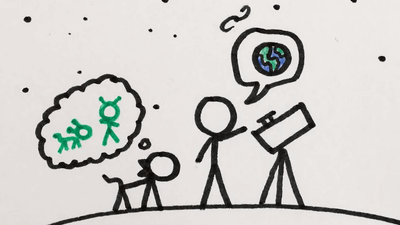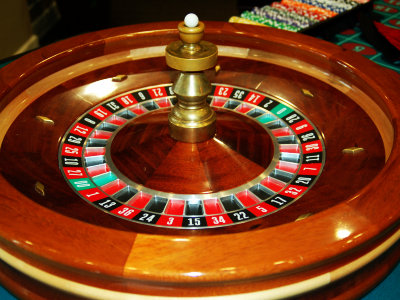What is the actual probability of '1 in a million'?

Phrases such as ``just in case'' and ``not even one in a million'' are used casually, but in English the phrase ` `a million chance' ' is often used to mean the same thing. The Statistics Bureau of the University of California, Berkeley, shows research data on what kind of events actually correspond to a '1 in 1 million probability'.
What really has a 1 in a million chance?

References to chance in blogs
https://www.stat.berkeley.edu/~aldous/Real-World/blogs.html
The Statistics Bureau first investigated and analyzed what expressions are used when the phrase ``a million chance'' is used casually. On top of that, we list examples to show how much 1 in a million actually happens. Finally, it statistically shows the probabilities of facing various risks in life based on units called micromorts , which are defined as the 1 in 1 million chance of dying.
First of all, regarding the cases where the phrase '1 in a million chance' is used, the Statistics Bureau describes cases such as 'actually experienced past events,' 'events that could happen to you in the future,' 'events that affect a specific other person,' 'non-individual It is divided into four categories: ``Conjecture''.
``Past events that I actually experienced'' include things like ``It was a one-in-a-million miracle that I was able to meet such a wonderful partner,'' and ``It was a one-in-a-million misfortune to witness an incident while traveling.'' It can be used in both good and bad senses. We also sometimes talk about past experiences in a way that means something like ``something that turned out better than expected.'' Similarly, ``events that may happen to me in the future'' can be used in both good and bad senses, such as when talking about dreams, ambitions, or worries, as an expression of ``something that is unlikely to happen easily.'' Confirmed. 'Events that affect a specific other person' have the same meaning as the above two points, but because the subject is someone else rather than oneself, the inference is stronger.

In addition, 'impersonal speculation' is an expression that gives an overview of a rare event without a specific subject such as yourself or another person, such as 'It is a one in a million chance that your first love goes well.' . In personal speculation, the abilities and positions of yourself and others influence the probability, but non-personal speculation is speculation in general terms. In all four categories, 'one in a million' often means rarity or uniqueness, but in exceptional cases, 'one in a million' does not only mean rarity; It is sometimes used in the opposite sense, meaning 700 ordinary people.
The Bureau of Statistics then lists actual phenomena with a probability of 1 in a million.
・Flip a coin 20 times in a row.
The probability that the coin continues to come up tails when tossing it n times is calculated as '1/2^n'. '2^n' exceeds 1 million because '2^20 = 1,048,576', so the probability of getting tails 20 times in a row in a coin toss is close to 1 in 1 million.
・Probability of winning the first prize if you buy 6 Powerball lottery tickets every week for one year
In

・Probability that an earthquake occurring on the Hayward Fault will affect the University of California, Berkeley within 50 minutes
The Hayward Fault is a geological fault zone on the San Francisco Peninsula that has the potential to generate destructive earthquakes. According to a 2007 estimate, the probability of a large-scale earthquake occurring on the Hayward Fault is about 1% per year, so the chance of earthquake damage occurring within 50 minutes at the University of California, Berkeley, a few hundred meters away, is , it seems to be close to 1 in a million.
・One of the 24 babies born in the United States will become president.
The birth rate in the United States is approximately 4 million babies per year, and the average presidential term is 6 years, so 6 x 4 million = 24 million babies will be born until a new president is needed. Therefore, if we randomly select 24 babies to be born in the future, we can say that the probability that one of them will become president is 1 in 1 million.
Also, ``probability of 1 in a million'' is not only a phrase used casually, but also a unit called micromort (minimal probability) used as a measure of mortality risk. A micromort is defined as a 1 in 1,000,000 probability of death, and based on past event occurrence rates and statistics, ``Scuba diving has a 5 micromort (5 in 1,000,000 probability of death) per dive. 'Climbing Everest is 37,932 micromorts (approximately 1 in 20 risk of death).'
Events where the risk of death is 1 in 1 million, that is, close to 1 micromorte, include ``death due to a snowboarding accident after visiting an official ski resort (0.7 people in 1 million)'' and ``death due to a snowboarding accident after visiting an official ski resort once (0.7 people in 1 million)'' and ``death due to a snowboarding accident after visiting an official ski resort once''. ``Deaths while traveling by car,'' according to the Bureau of Statistics.
◆Forum now open
A forum related to this article has been set up on the GIGAZINE official Discord server . Anyone can write freely, so please feel free to comment! If you do not have a Discord account, please create one by referring to the article explaining how to create an account!
• Discord | 'Tell me about the 'miraculous event' you actually experienced!' | GIGAZINE
https://discord.com/channels/1037961069903216680/1196385536445792320
Related Posts:
in Note, Posted by log1e_dh







